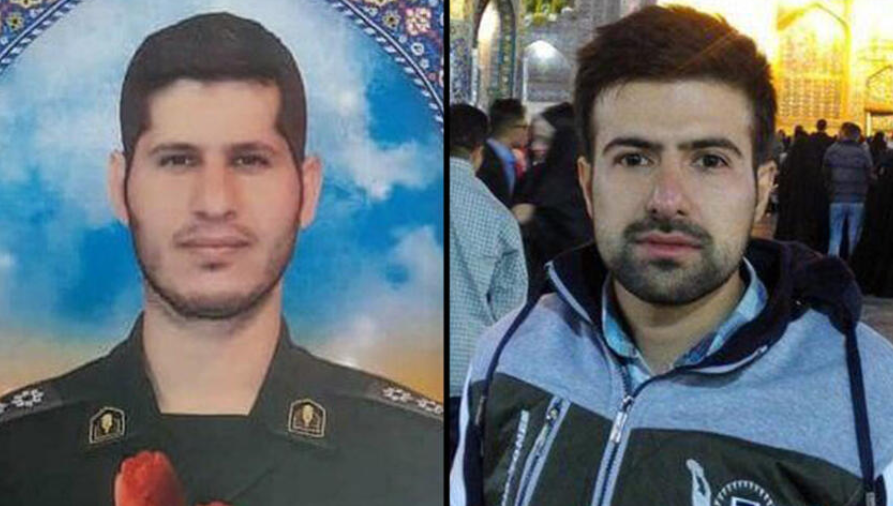
New IRGC intelligence chief Mohammad Kazemi (left) and his predecessor Hossein Taeb
The Iranian domestic political scene is coming under renewed restrictions, notably more rigorous enforcement of the Islamic dress code but, more significantly, increasing pressure on civil society leaders. The security forces have three arrested film directors — Mohammad Rasoulof, Jafar Panahi, and Mostafa Aleahmad — as well as reformist leader Mostafa Tajzadeh.
The filmmakers were among 100 Iranian film industry members who signed a letter and participated in a social media campaign — dubbed ‘Lay down your gun’ — calling on security forces to stop shooting protesters following the deadly Metropol building collapse in May.
The behaviour patterns of the political regime suggest two reasons for tightening the reins in the midst of an economic crisis.
First, tightening domestic conditions in advance of relaxing foreign policy is an established tactic to project strength in external relations. Second, the crackdown may be motivated by the regime’s desire not to show any weakness domestically in anticipation of major internal shifts.
The second reason seems more plausible. Experts agree that the transition of power that will follow the demise of Ayatollah Ali Khamenei is already a guiding consideration in political decisions.
One manifestation of this trend can be seen in the replacement of Islamic Revolutionary Guard Corps (IRGC) intelligence chief Hossein Taeb, a cleric, with Brigadier General Mohammad Kazemi who is an IRGC commander. The military wing of the hard-line faction is thus consolidating its power.
Khamenei has been Supreme Leader since 1989. While his successor will have to be a cleric, all key elites would like to see someone whose sympathies lie closer to their agenda and preferences. This could lead to complex bargaining processes that will unsettle the political climate. For that reason, the security forces are attempting to limit the ability of critics to exacerbate a potentially turbulent climate.
Once Khamenei dies, the Assembly of Experts will have to convene to elect a successor. President Raisi will be one of the candidates, and although his success is not a foregone conclusion it would ensure the smoothest of all transitions. As president, he has already had to consolidate his authority within the power structure.
Some analysts expect a weak cleric to be propelled into the position by IRGC influence and then controlled by the Corps, but this scenario assumes that the IRGC leadership is united. One should not forget that their allegiance to Khamenei has in the past united IRGC commanders – and that this dynamic will change once he passes away.
The only point that all IRGC commanders and most hard-line clerics agree on is that internal and external security is more important than social, political, and economic development.
Experts argue that the succession issue also throws a shadow over the nuclear negotiations. They suggest that the death of Khamenei would lead to prolonged domestic bargaining, rendering the country weak towards its external enemies. The talks are thus affected by the desire not to lose or reduce nuclear capacity that could bolster Iran’s deterrence abilities if necessary.
Tehran is between the horns of a dilemma. The collapse of the talks would have negative psychological and economic implications, but their success could force Iran to limit its nuclear capacity at a critical juncture. The solution is to prolong negotiations as much as possible.
This excerpt is taken from Iran Strategic Focus, our monthly intelligence report on Iran. Click here to receive a free sample copy.The July 2022 issues of Iran Strategic Focus also includes the following:
Commentary
- Takeaways from the Russia–Türkiye–Iran summit
Politics & Society
- The shadow of succession
- Nuclear ambiguity
- Drones as deterrents
- Regional diplomacy
- Former judicial official gets life
Special Feature
- Iran–Russia co-operation
Profile
- Mostafa Tajzadeh
Economy & Energy
- Currency under pressure
- Bonds to the rescue?
- Grain production
- Shipping and transit potential
- Iran–EU trade
- June oil production
- Azadegan oil field



